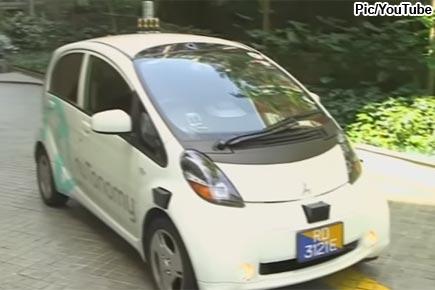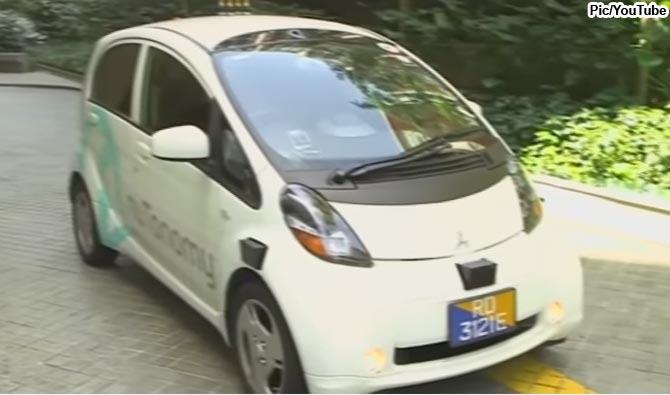The world's first driverless taxis went into operation in Singapore in a limited public trial, beating giants like Uber in the race to roll out the revolutionary technology

Singapore self-driving cars
Singapore: The world's first driverless taxis went into operation in Singapore in a limited public trial, beating giants like Uber in the race to roll out the revolutionary technology.
ADVERTISEMENT

The "robo-taxi service" is being tested at a small research campus well away from the thrum of the Asian business hub.
Data from the experiment will feed into the roll-out of driverless taxis across the city-state in 2018, said nuTonomy, a US-based tech start-up that developed the software used in the vehicles.
"The trial represents an extraordinary opportunity to collect feedback from riders in a real-world setting," said nuTonomy chief executive and co-founder Karl Iagnemma. "This feedback will give nuTonomy a unique advantage as we work toward deployment of a self-driving vehicle fleet in 2018," he said.
The six taxis -- Renault Zoe and Mitsubishi i-MiEV electric vehicles -- will operate in a 2.5 square mile (4.0 square kilometre) area, with set pick-up and drop-off points.
Trips have to be booked through the company's smartphone app.
Although the high-tech cars will drive themselves, each journey will be accompanied by a nuTonomy engineer, who will observe how the machine performs, and be ready to take over in the event of a problem, the company said.
Ride-sharing giant Uber said last week that it would be launching driverless cars in the US city of Pittsburgh by the end of August. It has also established a USD 300 million venture with Chinese-owned, Swedish-based Volvo to develop self-driving cars for sale by 2021.
Separately, Google parent Alphabet announced in May that it is partnering Fiat Chrysler in expanding its fleet of self-driving vehicles, which it hopes will hit the road by end-2016.
Last week, American multinational online transportation firm Uber Technologies Inc. announced that it has acquired 'Otto', a technology startup whose aim is to make trucks self-driving. While announcing the move in a posting on Uber's website, chief executive officer and co-founder Travis Kalanick said his company would put about 100 self-driving sports utility vehicles (SUVs) onto the streets of Pittsburgh, Pennsylvania, as soon as this month. (Read more)
Swedish carmaker Volvo announced in May that it would give self-driving cars to ordinary Britons to test on the streets of London in 2017.
In 2014, Google unveiled a 25 mph driverless vehicle — minus a steering wheel.
Co-founder Sergey Brin unveiled the car — equipped with only a stop/go button and is capable of reaching up to speeds of 25 mph — at a conference in California.
But, the testing phase doesn't seem to be a smooth one. A self-driving car being tested by Google collided with a public bus on Valentine's Day this year.
The report was written by Google, which has been testing two dozen Lexus SUVs outfitted with sensors and cameras near the tech firm's Silicon Valley headquarters. Google wrote that its car was trying to get around some sandbags on a street when its left front struck the bus' right side. The car was going 2 mph (3 kph), the bus 15 mph. No one was injured. Google said its car's safety driver thought the bus would yield.
About Autonomous Driving (AD) cars
Also called driverless, self-driving and robotic, these vehicles are capable of sensing the environment and navigating without human input.
- With inputs from agencies
 Subscribe today by clicking the link and stay updated with the latest news!" Click here!
Subscribe today by clicking the link and stay updated with the latest news!" Click here!






